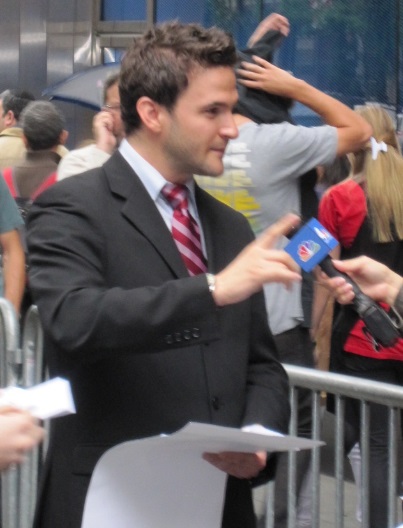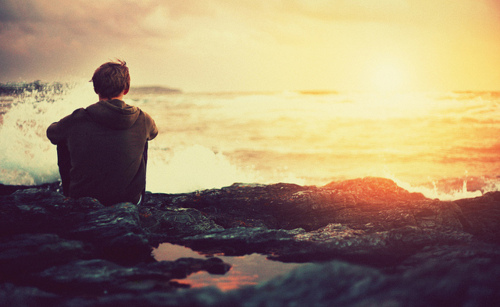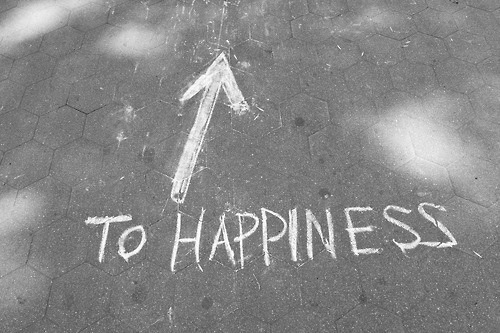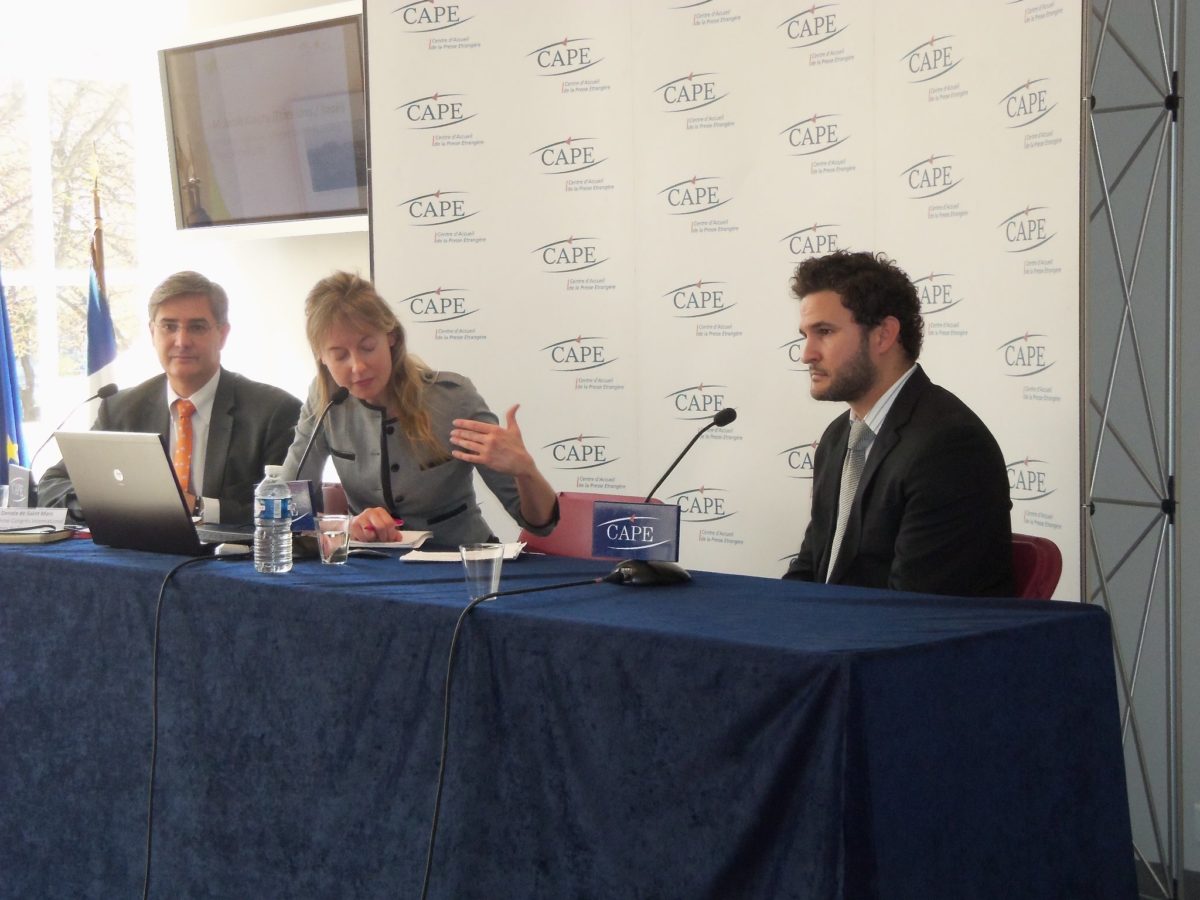Tag: Jacob Kimchy
– Jacob Kimchy
Every morning is a chance for a change
timesofisrael.com: Jacob Kimchy- On the 13th Anniversary of 9/11, Terrorism is More of a Reality than Ever
Thirteen years ago, the world stopped breathing as everyone watched in horror as the Twin Towers were attacked and fell, murdering 2,700 innocent people and leaving hundreds of thousands of victims in its wake and countless others in trauma.
The skyline of New York City changed forever that day, and despite the Freedom Tower standing tall and proud this year, the city has a scar which will remain there forever.
I was a student when it happened. My father called to tell me about the attacks. I rushed home and sat around the TV with my family watching the unimaginable. I remember my father’s words “the towers won’t fall. They are strong and will survive.” But that wasn’t how it ended, and minutes later we all cried as a new reality set in for the entire world. And in seconds, hundreds of families of the 2,700 innocent victims, as well as the hundreds of thousands that were there that day, joined a new club – victims of terrorism.
Eight months later my family joined that very same club. My father was murdered in a suicide bombing in our hometown of Rishon Letzion, Israel, along with 14 other innocent people.
Terrorism is a cancer that continues to spread around the world. Overnight it seems, the face of terrorism has changed and become darker and more evil. Just a few months ago, the world was focused on sanctions with Iran and the war with Hizbollah and Hammas. The world put its focus on Tehran and its nuclear program without knowing that a new group would emerge, ready to storm the world with horror videos and quickly spread its ideology and recruit supporters. All the while the Western world enjoyed summer time.
But the conversation has changed and this new group, ISIS, is much stronger and more violent than we have seen before, and doesn’t discriminate between its victims. Like a cobra, ISIS surprised us out of nowhere, leaving the world in shock, struggling to find a way to react. And the social media tools – facebook, twitter, and youtube – that we all love so much, are also being used by these terrorist groups to recruit and push their ideology.
We aren’t doing enough to stop this cancer from spreading. We lack a strong coalition and leadership. And in the absence of both, global terrorism is becoming stronger and more popular. We see photos of children holding the ISIS flag, British rappers beheading American journalists, and more and more Westerners turning to radical ideology and joining ISIS.
As fear of ISIS increases, so does the reality of another attack in Europe or on American soil. We can only wish that September 11th won’t happen again, but we all know that is a far-fetched reality in today’s world.
These who have never faced terrorism will have hard time understanding how cruel its hand is and the scar it leaves. We must hope that our government can act fast and swift and radiate the cancer before it spreads, in order for all of us to live in a better world.
– Jacob Kimchy
Hope is the biggest sign on the road of life
Jacob Kimchy- ‘A New Sunrise’ Video
Please view my book campaign on Indiegogo: CLICK HERE
unitedwithisrael.org: From Terror Victim to Warrior: Jacob Kimchy’s Story
An Israeli man stricken by terror has made it his life mission to help victims and their families. It is a story of triumph over the darkest forces of evil.
As the terrible attacks of 9/11 are remembered and mourned, we selected to focus on the story of one terror victim from Israel who, by continuing a legacy of mutual support and giving, chose not to succumb to terror.
Jacob remembers the fateful phone call vividly. “Where are you!” screamed a friend who worked for Israeli Intelligence. “There’s been a terrorist attack! Where are you?” I immediately called my father. But there was no answer. I went straight to the scene of the bombing.”In 2002, Rami Kimchy, 57, a taxi driver, entered a club in his hometown of Rishon Letzion, near Tel Aviv, to pick up a client. Within minutes, an 18-year-old Hamas suicide bomber entered after him and blew himself up, killing Rami and 14 others instantly. His son, Jacob, was one of the first to arrive at the scene, in hopes of helping survivors, only to recognize his father’s car parked in front and to quickly realize the dreadful fact that his father had been murdered.
Overcoming Loss and Tragedy
“For many months after the murder, I could find no way forward. What was this life? What kind of a God would allow something like this to happen to a kind, sweet man who had never hurt anyone? I was lost. I found myself driving at night as fast as I could, up to 100 miles per hour at times, music blaring, screaming and crying.”
Jacob was sure he would never be able to overcome the loss and tragedy. But he did. After attending a support group for young people who had lost their parents, at the request of his mother, Jacob found his path.
Despite the psychological and emotional damage wrought by direct exposure to an act of terrorism, Jacob channeled his unimaginable sorrow into the cause of a lifetime. After many months of indescribable agony, he slowly came to the realization that one way to carry on living with such unimaginable pain is by reaching out to other victims of terror. In time, this coping mechanism would flower into a mission.
tlvfaces.com: For The Sake of The Next Generation
Another Holocaust Remembrance Day has passed, leaving the Jewish nation with much sobbing, memories and pain. I sat down with my family to watch various movies detailing the stories of Holocaust survivors and I heard from my dear aunt’s mouth the personal account of the voyage she made from France to Israel, together with my grandfather on the ship, The Exodus.
It is difficult to describe what the Jews went through at the time of the Holocaust and comprehend the extent of evil that led the Nazis to try to exterminate the Jewish nation.
The many photographs that were shared among my Facebook friends made tangible the severity of hate that exists for the Jewish people. It is not easy to look at piles of Jewish bodies next to smiling Nazi officers, Nazi soldiers cutting the beards of Rabbis, and Jewish children lifting their hands, fearfully before a shooting squad.
It all began through brain-washing, the use of media, and the transference of hate, where Jews were depicted as animals and bloodsuckers. Millions of people stood by, doing nothing to stop the deluge of poison that eventually brought about the Second World War.
The question that begs to be asked is, what has changed since then? The answer is one thing alone-the State of Israel.
The current, 2013 edition of global anti-Semitism is record-breaking and continues to spread without hindrance. You can now spot swastikas in every corner of Europe, New York and even in Israel. The octopus drawings that liken the Jew to one who possesses long arms, appear today just like they did 70 years ago and the physical injury to Jews has begun to rage, as well.
In various places within the U.S., there are still those who believe that Jews have horns, and millions more around the world today are driven by the erroneous notion that all of the world’s Jews are holding on to millions of dollars from their own bank accounts.
Even if I try to describe the magnitude of the anti-Semitism phenomenon that is quickly expanding by global proportions, I couldn’t assess the exact figure, nor the extent of danger, but the only answer that stands before us in order to continue existing in a world filled with such immense evil, is for all of us to support the Jewish State.
The Jewish people must concern themselves of the fact that the Jewish State must remain strong and firm. We must cultivate every corner of Israel and raise our children with the values and ideology that will lead us to a prideful and united future.
The State of Israel is our precious diamond and our children’s future but we must not forget our brothers in the Diaspora.
Currently, in many of Europe’s cities, it is becoming nearly impossible to remain living as a Jew.For many years now, Jews do not dare to wear kippas or go around with Stars of David around their necks for fear of the repercussions. It is easy to observe in cities like New York, which is home to approximately 2 millions Jews, when synagogues are protected by police teams and private security personnel for fear of attack. These same synagogues are situated right next to churches which need no such protection.
The State of Israel is obligated to stand with Her back straight and serve as the voice of Diaspora Jewry before the political leaders and religious figures of Europe. It is not possible that an additional storm of hate and attacks on the Jewish people will occur silently, in the very same places where 6 millions of us were murdered.
The same evil which has been allowed to spread in a democratic fashion, must be stopped. The small trickle of human injury, such as those witnessed in Toulouse, France show us precisely what awaits us in the future.
The words, “never again,” hold a much deeper and important meaning than a momentary saying usually does. These two words must lead us in two directions. On the one hand, we must continue to remember our past, yet we must just as importantly, fight the evil that is anti-Semitism, so that we can all have a deservedly bright future.
thejewishweek.com: Happy Campers, Unhappy Memories
Evyatar, a kindergarten student in Israel 13 years ago, sensed that something was wrong when neither of his parents picked him up from school. An uncle showed up a few hours later and told his nephew what had happened – Evyatar’s parents had been attacked by terrorists at an Israeli toy store; his father was dead, his mother injured. Ben Borgia, a voice-over actor in Australia, heard his tragic family news at 7 a.m., Sydney time, seven years ago.
His phone rang. His mother and 13-year-old sister, he learned, were among 202 people killed, 88 of them Australians, in a terrorist bombing the previous night in an Indonesian nightclub. Bali that day became Australia’s 9/11. For two recent weeks, Evyatar, a 19-year-old Jew, and Borgia, a 29-year-old Catholic, and several other young Jews and Christians, shared their common experiences as victims and survivors of terrorism.
At a weeklong camp sponsored by the One Heart Global organization (oneheartglobal.org) at Bryn Mawr College near Philadelphia, and during a subsequent week of touring here, they shared their stories of loss, comforted each other, laughed and cried together, and talked about common interests in music and sports. “People” who have escaped a terrorist attack or lost a family member to terrorism “don’t get to share their stories very much” with others who have gone through the same experience, says Evyatar, a recent high school graduate who asked that his full name not be printed. For him and the other participants in the One Heart Global activities – including teens from Spain, Liberia, the United States and Northern Ireland – the camp’s therapy sessions and conflict resolution lessons, leadership training classes and entertainment downtime, were a rare chance to unburden themselves or simply keep their feelings to themselves with peers who understand either choice.
The camp was co-sponsored by Tuesday’s Children (tuesdayschildren.org), a family service organization founded by family and friends of 9-11 victims. “It helps. It helps a lot,” Evyatar says. He and Borgia, who is working on an oral history project with other victims of terrorism, discussed the discomfort they feel, or which friends feel, when the subject of parents come up. “When people talk about their mothers, it’s a very difficult experience,” Borgia says. He feels his loss especially at those times. He and Evyatar discussed how they coped with losing a parent, suddenly, to terrorism. Evyatar, then still a kid, would keep his emotions inside. Borgia says he took up drinking. “For a long time I had to escape.” And they talked about the ongoing impact of terrorism on other members of their families. Borgia says he joined the One Heart Global group as part of his mission to help fellow victims of terrorism, particularly needed in a country like Australia that does not offer the network of support services for victims of terrorism available in this country and Israel.
“I’m trying to find my purpose,” he says. The organization includes the training and conflict resolution sessions in its annual camp in order “to promote the idea of global peace” among the people most affected by hatred, says Sarri Singer, co-founder of One Heart Global. “This is the next generation. These are the next leaders of their countries.” Singer, a native of New Jersey and assistant director of career services at Touro College, was injured in a terrorist bus bombing in Jerusalem six years ago. The blast killed 17 people, including everyone around her on the bus, and injured 100 more; she spent more than a week in the hospital. She and Jacob Kimchy, a Sabra whose father was killed in a terrorist attack in Rishon Lezion seven years ago, established One Heart Global to help other victims of terrorism heal.
The organization’s motto is “Healing victims of terror and their families around the world.” “Terrorism does not discriminate,” Singer says. “It’s not just one country’s problem. It’s not just Israel’s problem.” The pain of losing a parent is “always there – it’s a scar for life,” even if it is not always discussed, says Kimchy, who helped found One Heart Global as a memorial to his father, Rami. In New York, Kimchy and Singer and the participants in this summer’s activities told their stories, some hesitantly, some more confidently, during meetings with Israel Consul General Asaf Shariv and Gov. David Paterson. The governor, who talked about government efforts to assist workers who became ill after working at the World Trade Center terrorism site, said he was inspired by young people who had lost relatives to terrorism but are working to help other people. “I’m afraid [you] would have become jaded,” he said.
“There is a fight you can wage with a spirit.” The group’s itinerary here included shopping and sightseeing, and meetings with other politicians and One Heart Global donors. The subject of each person’s loss to terrorism came up during the two weeks, but not all the time, Evyatar says. “My whole life is not about that.”
Via http://www.thejewishweek.com/features/happy_campers_unhappy_memories_1
tlvfaces.com: Israel Releases 26 Terrorists; What about the Families of the Victims?
26 terrorists were release from an Israeli jail last night. These 26 murderers left the families of the victims with a hole in their heart and a lifetime of pain. It’s a kind of pain that follows you everywhere and stays with you for years, even in the happiest of events.
I lost my father to a suicide bombing during the second Intifada. And while the terrorists being released had nothing to do with my father, their release has hit home and is an unbearable turn of events.
But more importantly for the victims, there is a need to prepare them for the fact that those who murdered their loved ones are now free. Even more disappointing than the release is the fact that the Israeli government has failed to do this. Most of the families heard the news from friends or surfing the web, not from the government or through psychologists deployed to help prepare them for this torturous day.
It is accepted that when a soldier is hurt or killed in battle, a group of psychologists and government officials, will go to the parent’s home to tell them the news. So why is the release of a murderer not equal to this? It is a second loss for the family and they need, now more than ever, the government’s full attention to help them recovery. It is like sitting a second “shiva”.
After speaking with many victims of terrorism over the last few days, and based on my own experiences through my organization, One Heart, which I founded to help victims of terrorism, I know all too well that this event touches the hearts of many, and the help that the Israeli government needs to provide is even wider. The release of these 26 terrorists causes a new pain to the thousands of Israeli victims of terrorism. One cannot imagine what we see when we close our eyes, and recent events have only brought those to the forefront once more.
A release should be well thought out and looked at from many angles. After all, for many victims, today it feels like our loved ones have been killed all over again.
Via www.tlvfaces.com
nysun.com: WTC Survivors To Meet With One Heart, Group for Terror Victims
After the terrorist arracks of September 11, 2001, New Yorkers tapped into the vast reservoir of experience to terrorism that Israelis possess.
The experience-sharing will continue – and flow both ways – at a meeting on June 26 between the World Trade Center Survivors’ Network and One Heart, a two-month old organization that hopes to provide survivors of terrorist attacks who may have psychological trauma with emotional support. Although not limited to victims of terror in Israel, all of its initial members fit that bill.
“One of our goals is to use our experience to help other survivors,” said Richard Zimbler, an organizer for the World Trade Center Survivors’ Network, which has 750 members. “When we first started out, the survivors of the Oklahoma City bombing gave us advice,” he said, and now September 11 victims are passing it along to others.
One of the two founders of One Heart, Jacob Kimchy, said, “It’s important to bring survivors from different places to one table, to one forum.”
The main purpose of One Heart is to make both group and individual psychological therapy available to survivors of terrorism who may be experiencing long-term trauma, and for relatives of those who have been killed. “Usually people who want to help focus only on immediate needs,” said the other founder of the organization, Sarri Singer. “Nobody thinks into the future.”
Another area of support is providing survivors with the resources to receive plastic surgery for deformities stemming from their attacks-an area that Ms. Singer said directly relates back to psychological trauma-.
In addition to the meeting with the World Trade Center Survivors’ Network, organizers of One Heart hope to have monthly meetings. A first meeting two weeks ago drew 15 to 20 people.
“There’s something about finding people who had the same experience as you that’s therapeutic,” said Barbara Chasen, a Ph.D. psychoanalyst who voluntarily led the first meeting and hopes to lead a few more. “In the talking there’s a bonding experience,” said Ms. Chasen.
Ms. Chasen offered testimony that sharing personal experiences could be therapeutic. She was stuck in an airport when the February blizzard hit New York City. She had overheard a man talking with an accent and asked him if he was Israeli. Mr. Kimchy responded that he was. They started talking about the latest terrorist attack in Israel, and Mr. Kimchy responded that he was in America to begin One Heart, and he said that he had lost his father in an attack. She soon told him that she had lost her 12-year-old son 13 years earlier after he was hit by a car.
“He took out a picture of his father, and I took out a picture of my son,” she said. “There we were two stranger sharing our deepest pains.”
Via http://www.nysun.com/new-york/wtc-survivors-to-meet-with-one-heart-group/34176/






